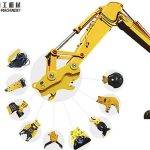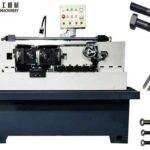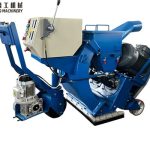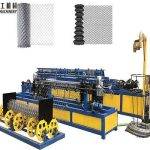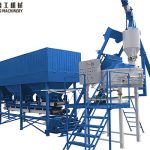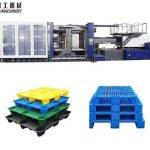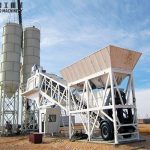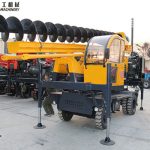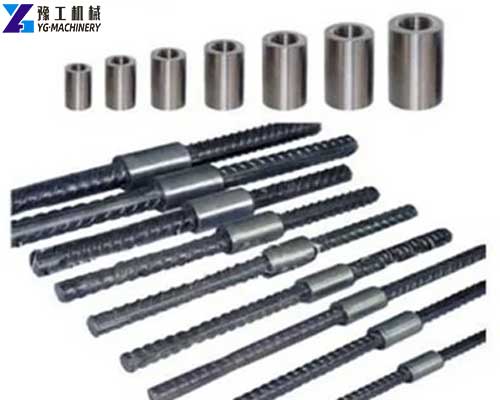
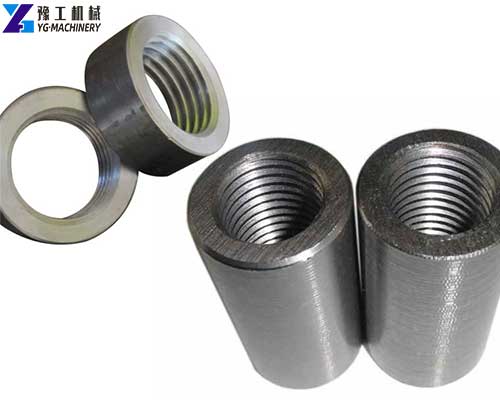
In modern construction projects, steel bars are an integral part of concrete structures, giving buildings strong tensile strength. To connect steel bars of different lengths and ensure the integrity and stability of the structure, mechanical rebar couplers play an important role. A mechanical rebar connector, also known as a thread rebar coupler, is a device that connects two rebars by mechanical means (such as threaded connection, extrusion connection, etc.). Compared with traditional lap connections and welding connections, the mechanical connector has higher connection strength, better construction efficiency, and wider applicability. Contact us for more details.【WhatsApp/WeChat/Skype/Phone】+86 136 1385 6800
Mechanical Rebar Couplers Specification:
| Rebar size | D16mm | D18mm | D20mm | D22mm | D25mm | D28mm | D32mm |
| Outer Diameter (mm) | 24 | 27 | 31 | 33 | 37 | 41 | 47 |
| Length (mm) | 40 | 45 | 50 | 55 | 60 | 65 | 70 |
| Thread Pitch | 2.5 | 2.5 | 2.5 | 2.5 | 3.0 | 3.0 | 3.0 |
| Thread Angle(degree) | 60/75 | 60/75 | 60/75 | 60/75 | 60/75 | 60/75 | 60/75 |
| G/W(KGS) | 0.076 | 0.110 | 0.176 | 0.207 | 0.275 | 0.365 | 0.515 |
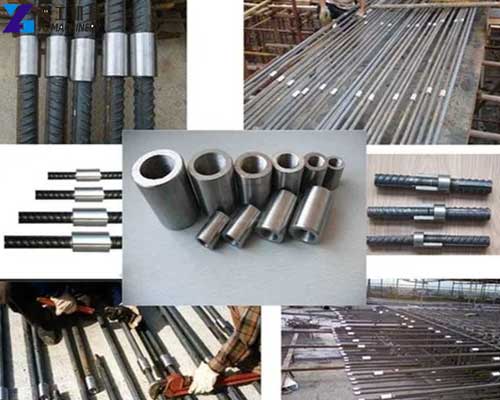
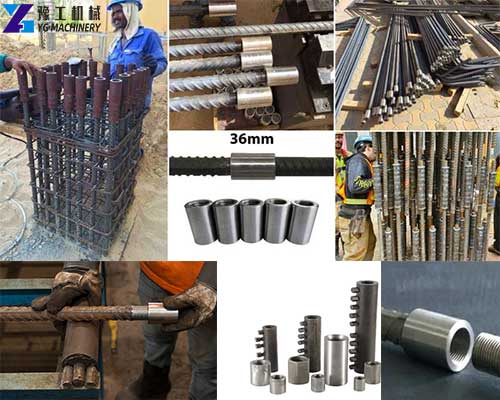
Types of Mechanical Rebar Connectors:
- Threaded connector: This is one of the most common types. The ends of the rebar are pre-processed into threads and then connected through the internal threads on the connector. According to the different thread forms, it can be divided into straight thread connectors and tapered thread connectors.
- Extrusion connector: The connector is squeezed at the ends of two rebars by hydraulic or mechanical means to form a strong connection. This connection method is suitable for connecting rebars of different diameters.
- Grouting connector: After the rebar is inserted into the connector, high-strength grouting material is poured into the interior of the connector, and the connection is formed after the grouting material hardens.
- Cold heading connector: The end of the rebar is tightly combined with the connector through cold heading deformation.
Advantages of Mechanical Rebar Connectors:
- High-strength connection: Mechanical connectors can provide connection strength equivalent to or even higher than that of the steel bar parent material, ensuring the safety of the structure.
- High construction efficiency: Mechanical connection is easy and quick to operate, greatly shortening the construction period, especially suitable for projects with tight construction schedules.
- Wide applicability: Mechanical connectors are suitable for connections of various diameters and types of steel bars, including connections of steel bars of different diameters, and have strong adaptability.
- Stable and reliable quality: The quality of the mechanical connection is less affected by human factors, and the connection quality is stable and reliable, reducing quality problems caused by human operation errors.
- Save steel: Compared with a lap connection, the mechanical connection can reduce the amount of steel bars and save project costs.
- Reduce on-site workload: Many mechanical connectors are prefabricated, reducing on-site processing workload, which is conducive to civilized construction and environmental protection.
- Not affected by the environment: Compared with welding, mechanical connection is not affected by weather and environmental factors, and can be constructed under various climatic conditions.
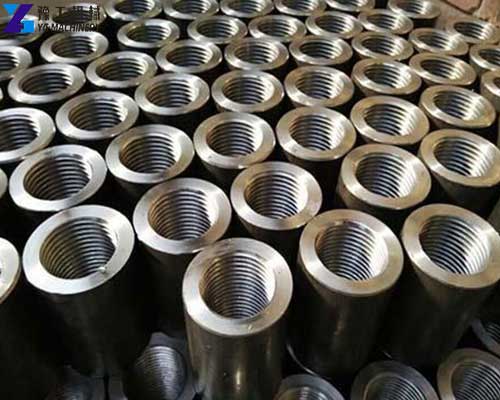
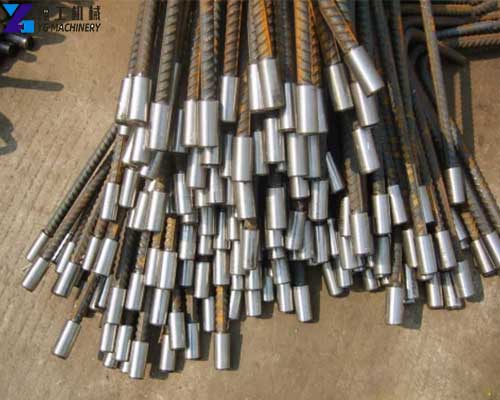
Mechanical Rebar Connectors Are Mainly Used in the Following Fields:
- High-rise buildings: Ensure structural stability and safety.
- Bridge engineering: WIth huge loads and complex environmental impacts.
- Tunnel engineering: Solve the problem of rebar connection under limited space and harsh environmental conditions.
- Important projects such as nuclear power plants: Meet extremely high safety and reliability requirements.
- Prefabricated and assembled buildings: Convenient and quick connection of prefabricated components.
- Other infrastructure construction: For example, highways, railways, water conservancy projects, etc.
The Machines Related to Mechanical Rebar Connectors Are Mainly:
- Rebar processing equipment: including rebar cutting machines, straightening machines, bending machines, etc., used to pre-process rebars.
- Connection operation equipment: including thread rolling machines, hydraulic extruders, grouting pumps, cold heading machines, etc., used to complete connection operations.
- Auxiliary tools: including torque wrenches, wrenches, clamps, etc., are used to assist connection operations.


